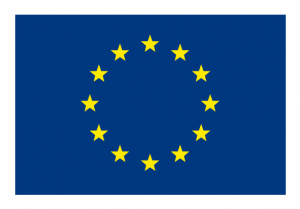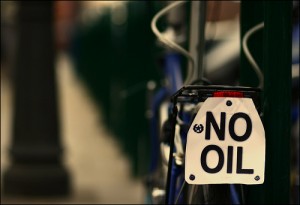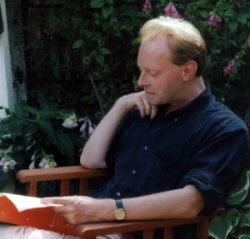The Science and Technology Committee heard suggestions for areas of inquiry that could be undertaken by the committee. Below are the ideas that were pitched to the Committee for further investigation. (more…)
Tagged / fossil fuels
Horizon 2020 funding in 16/17: Societal Challenges – SC3
Societal Challenges, by their nature, require input from across the disciplines. Please read on, even if you think this is not applicable to your direct area of research.
 Secure, clean and efficient energy, (Horizon 2020, Societal Challenge 3) has a number of opportunities relevant to BU in 16/17. With specific calls ranging from consumer behaviour to energy efficiency and renewables, there really is something for everyone in Societal Challenge 3.
Secure, clean and efficient energy, (Horizon 2020, Societal Challenge 3) has a number of opportunities relevant to BU in 16/17. With specific calls ranging from consumer behaviour to energy efficiency and renewables, there really is something for everyone in Societal Challenge 3.
Energy Efficiency. This is a wide-ranging call with funding opportunities across a many disciplines. The following are just highlights from over 20 forthcoming calls:
Behavioural change toward energy efficiency through ICT (closes 19 January 2017)
Engaging private consumers towards sustainable energy (closes 07 June 2017)
Increasing capacities for actual implementation of energy efficiency measures in industry and services (closes 07 June 2017)
Bringing to market more energy efficient and integrated data centres (closes 19 January 2017)
Making the energy efficiency market investible (closes 07 June 2017)
Competitive Low-Carbon Energy. call. Highlighting:
New knowledge and technologies (closes 29 November 2016 with second stage closing on 22 August 2017)
Social Sciences and Humanities Support for the Energy Union (closes 29 November 2016 with second stage closing on 22 August 2017)
Geological storage pilots (closes 05 January 2017)
Market uptake of renewable energy technologies (closes 05 January 2017)
Prizes:
LCE-Prize-PhotovoltaicsHistory-01-2016: Horizon prize for Integrated Photovoltaic System in European Protected Historic Urban districts (closes 26 September 2018)
Horizon prize for a Combined Heat and Power (CHP) Installation in a hospital using 100% Renewable Energy Sources (closes 03 April 2019)
Horizon prize for CO2 reuse (closes 03 April 2019)
Find out more about the Secure, clean and efficient energy, Societal Challenge.
Please also take a look at the 16/17 Work Programme for this Societal Challenge, for the full picture. You may find it easier to review the opportunites by scanning through a PDF, with links from the contents pages.
More information about Horizon 2020 is located on their dedicated website and on the Particpant Portal. The Societal Challenges form one of the three pillars, which make up this flagship EU scheme.
You can advertise for potential partners or promote your area of expertise to others leading bids using the EU CORDIS website.
Watch out for further blog posts outlining other EU and international opportunties in 16/17.
What next?
Take a look at the dedicated BU Research Blog page for Horizon 2020. If you are considering applying to any EU calls, please contact Emily Cieciura, RKEO’s Research Facilitator: EU & International, as soon as possible, so that we can support your bid.
Guest Lecture – What happens when the oil runs out?
This years series of nine community lectures at The Thomas Hardye School are set to start up this month so be sure to get your tickets soon! Details of the first fascinating lecture are below
Title of Lecture: ‘What Happens When The Oil Runs Out’?
Speaker: Professor Chris Rhodes.
Date of Lecture: Monday 24th September, 2012.
Time: 7.00pm.
Venue: The Thomas Hardye School – Theatre.
Across the world, 30 billion barrels of crude-oil are produced each year, not only for fuel but to make practically all products ranging from plastics to pharmaceuticals. Nearly all of our food also depends entirely on oil. However, world oil production is set to declining within 5 years. If we continue as we are, Western-Civilisation will collapse, and our salvation requires a re-adaption of how we live, from the global to the local; to a world of small communities far less dependent on transportation. Technology will not save us, unless we cut our energy use and particularly our demand for oil.
NB: Aspects of fracking, solar energy, geothermal energy, wind power and nuclear fusion will be covered within the lecture content.

Professor Chris Rhodes is a writer and researcher who became involved with environmental issues while working in Russia during the aftermath of the Chernobyl nuclear disaster. He studied chemistry at Sussex University, earning both a B.Sc and a Doctoral degree (D.Phil.); rising to become the youngest professor of physical chemistry in the U.K. at the age of 34.
He has published more than 200 peer reviewed scientific articles and 3 books. He is also a published novelist, journalist and poet. His novel, “University Shambles” was nominated for Brit Writers’ Awards 2011: Published Writer of the Year. He has most recently published an illustrated children’s book, “Hippy the Happy Hippopotamus”.
Chris has given numerous radio and televised interviews concerning environmental issues, both in Europe and in the United States – including on BBC Radio 4’s Material World. Latest invitations as a speaker include a series of international lectures regarding the impending depletion of world oil and the need to develop oil-independent, sustainable societies.
Admission: By ticket only (no charge, but donations welcome on the night)- available from School Reception, as from 08.45hrs on Tuesday 11th September,’12 and up to the day of the lecture itself.











 Beyond Academia: Exploring Career Options for Early Career Researchers – Online Workshop
Beyond Academia: Exploring Career Options for Early Career Researchers – Online Workshop UKCGE Recognised Research Supervision Programme: Deadline Approaching
UKCGE Recognised Research Supervision Programme: Deadline Approaching SPROUT: From Sustainable Research to Sustainable Research Lives
SPROUT: From Sustainable Research to Sustainable Research Lives BRIAN upgrade and new look
BRIAN upgrade and new look Seeing the fruits of your labour in Bangladesh
Seeing the fruits of your labour in Bangladesh ECR Funding Open Call: Research Culture & Community Grant – Apply now
ECR Funding Open Call: Research Culture & Community Grant – Apply now ECR Funding Open Call: Research Culture & Community Grant – Application Deadline Friday 12 December
ECR Funding Open Call: Research Culture & Community Grant – Application Deadline Friday 12 December MSCA Postdoctoral Fellowships 2025 Call
MSCA Postdoctoral Fellowships 2025 Call ERC Advanced Grant 2025 Webinar
ERC Advanced Grant 2025 Webinar Update on UKRO services
Update on UKRO services European research project exploring use of ‘virtual twins’ to better manage metabolic associated fatty liver disease
European research project exploring use of ‘virtual twins’ to better manage metabolic associated fatty liver disease